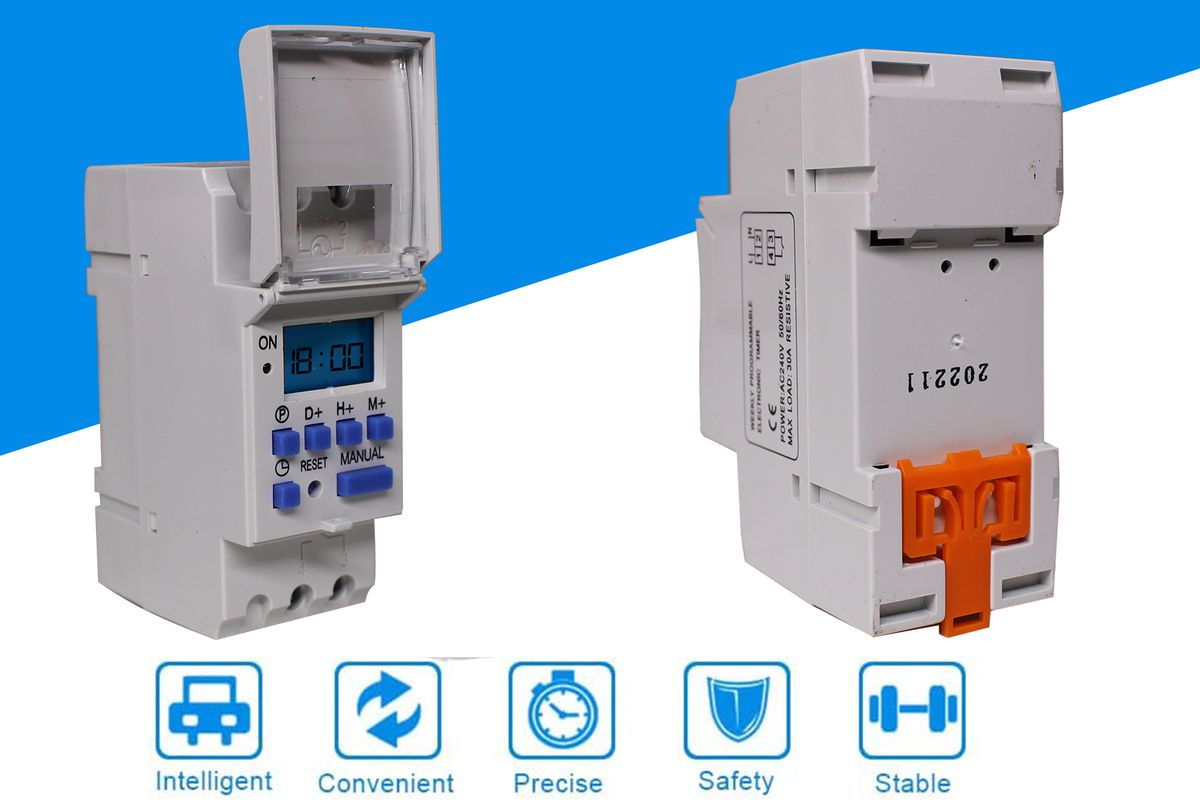Comprehending the Common Issues Linked With Hot Spring Timers for Efficient Water Heating
The efficient functioning of geyser timers is necessary for enhancing water heating effectiveness, yet users typically experience a range of usual problems that can compromise efficiency. Comprehending these factors is crucial to guaranteeing that geyser systems run at their finest, inviting a more detailed exam of the services that can address these widespread issues.
Common Breakdowns

One prevalent breakdown is the failing of the timer to launch home heating cycles. This can take place due to electrical issues, such as a blown fuse or defective electrical wiring, stopping the timer from getting power.

Incorrect Timer Setups
Misconfiguration of timer settings is an usual problem that can lead to significant inefficiencies in hot spring operation. When timers are established improperly, they might activate the hot spring at suboptimal times, causing either inadequate home heating of water or excessive energy consumption. For example, if the timer is programmed to switch on during height electrical energy hours, it not only blows up energy bills but additionally results in unneeded pressure on the electric infrastructure.
Additionally, inaccurate timer setups can disrupt the availability of warm water when needed - geyser timer. A badly set up timetable may leave homes without warm water throughout peak usage durations, creating hassle and stress. Alternatively, constant procedure as a result of misconfigured timers can lead to overheating, increasing and damaging the geyser maintenance expenses
Customers need to acquaint themselves with their geyser's heating requirements and adjust the timer to straighten with their details requirements. Appropriately configured timer settings inevitably add to a much more cost-efficient and lasting water heating solution.
Compatibility Concerns
Compatibility problems can considerably impact the efficiency of geyser timers, particularly when incorporating with various furnace or clever home innovations (geyser timer). Numerous hot spring timers are created to collaborate with details sorts of hot water heater, such as repellent burner or gas-fired systems. If a timer is not suitable with the heater, it might not work correctly, causing inefficient water home heating or perhaps damages to the system
Additionally, as clever home innovation remains to progress, the integration of hot spring timers with home automation systems can pose obstacles. Not all geyser timers supply the exact same degree of connectivity, which can prevent their capability to connect efficiently with smart centers or mobile applications. Users may discover themselves unable to regulate their geyser timers from another location or set routines that align with various other clever devices in their home.
In addition, the compatibility of geyser timers with existing electric framework can likewise be a problem. Variations in voltage scores, wiring requirements, and circuit arrangements can cause functional issues. As a result, it is vital to completely analyze compatibility with both the heating devices and the home's electric system prior to selecting a geyser timer to guarantee optimum efficiency.
Power Supply Troubles
Power supply problems can significantly impede the performance of hot spring timers, causing unstable procedure and raised power costs. These issues may stem from inadequate voltage supply, inconsistent power sources, or faulty wiring. A hot spring timer calls for a stable electrical input to function optimally; fluctuations can result in unpredictable performance or complete failing.
In addition, inaccurate voltage scores can damage the timer, rendering it faulty. It is vital to make sure that the geyser timer works with the electrical requirements of my site the installment website. Additionally, power rises or disturbances can interrupt the timer's programming, bring about ineffective home heating cycles and unexpected functional delays.
In instances of consistent power supply problems, speaking with a qualified electrical expert is recommended to make sure that the electric infrastructure sufficiently sustains the hot spring timer's needs. Proper attention to power supply can improve the effectiveness and long life of the hot spring timer system.
Upkeep and Troubleshooting
Regular maintenance and troubleshooting are vital for making certain the reliable operation of geyser timers. Routine checks ought to include examining the timer's connections and electrical wiring for any type of indicators of wear or damages. Make certain that all electric parts are free and secure from corrosion, as this can affect performance. Frequently clean the timer unit and surrounding areas to avoid dust buildup, which can hinder its procedure.
If problems arise, start troubleshooting by resetting the timer to its default setups. Verify the power supply to make certain the timer is getting ample voltage.
Furthermore, consider scheduling specialist assessments annually to attend to potential problems proactively. This strategy can prolong the life-span of the geyser timer and maximize its efficiency. By focusing on maintenance and efficient troubleshooting, customers can reduce typical troubles and guarantee regular efficiency from their geyser timers.
Final Thought
In final thought, identifying and resolving the usual issues associated with hot spring timers is essential for optimizing water heating efficiency. Timer malfunctions, incorrect setups, compatibility obstacles, and power supply troubles can significantly influence efficiency.
The reliable performance of hot spring timers is crucial for maximizing water home heating effectiveness, yet individuals usually encounter an array of usual problems that can jeopardize performance. When timers are set improperly, they may trigger the hot spring at suboptimal times, resulting in either not enough home heating of water or too much power consumption.Compatibility issues can substantially impact the performance other of geyser timers, especially when incorporating with different heating systems or wise home technologies. Lots of hot spring timers are created to work with specific kinds of water heaters, such as resisting heating click this site components or gas-fired systems.In final thought, recognizing and resolving the typical issues linked with geyser timers is crucial for enhancing water heating effectiveness.